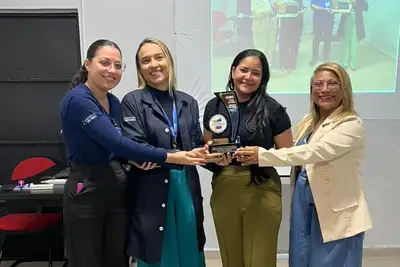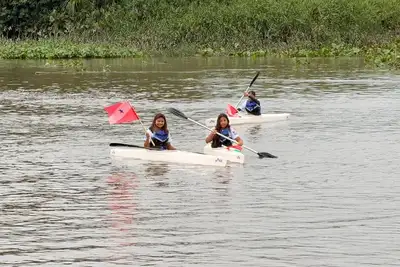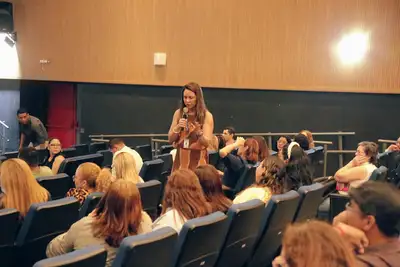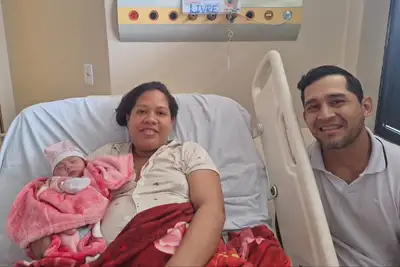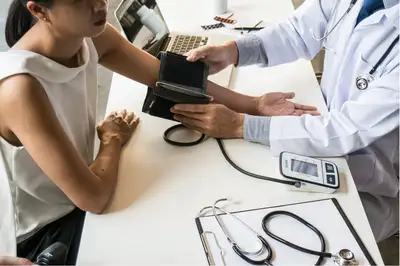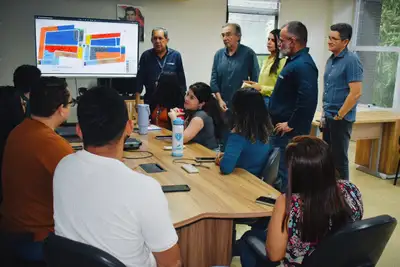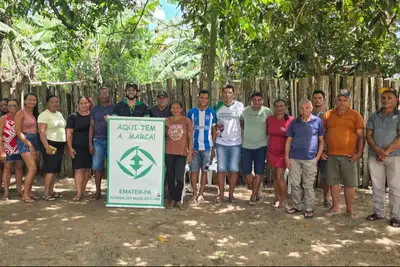Ideflor-Bio highlights Pará's experience in forest restoration during panel at AgriZone
The panel brought together representatives from various public entities and the third sector, consolidating a broad debate on the paths of restoration in the Amazon

The president of the Institute for Forest Development and Biodiversity of Pará (Ideflor-Bio), Nilson Pinto, participated this Saturday (15) in the panel "Restoration of Degraded Areas and Launch of the Learning Path in the Recomposition of Degraded or Altered Areas for the Amazon Biome," held at AgriZone, a space promoted by Embrapa during COP30.
The panel brought together representatives from Conservation International, the Public Prosecutor's Office of the State of Pará, through the Agrarian Prosecutor's Office of Marabá, as well as the state secretariats of Environment, Climate and Sustainability (Semas) and Family Agriculture (Seaf), and the Federation of Agriculture and Livestock of Pará (Faepa), consolidating a broad debate on the paths of restoration in the Amazon.

During the panel, Nilson Pinto presented the experience accumulated by Ideflor-Bio over nearly two decades of work in forest recomposition in different regions of the state. He particularly highlighted the impact of the agroforestry systems (SAFs) developed by the Institute, which have already provided technical guidance, nurseries, and knowledge to more than 100 municipalities in Pará, directly engaging with family farmers, traditional communities, and rural populations who today reconcile food production and environmental restoration. "It is a solution that benefits the forest, generates income, and strengthens the dignity of local populations," said the president.
The meeting also marked the launch of Embrapa's distance education learning path focused on afforestation and restoration, a tool that promises to expand access for farmers and technicians to environmental recovery technologies and methodologies. For Nilson Pinto, this initiative complements the ongoing work in Pará and opens new possibilities for integration between scientific research, public policies, and field practices. "It is an essential step to strengthen those at the forefront of the process: the farmers who recover areas and produce sustainably," he emphasized.

Advances - In his speech, the president also highlighted recent advances in projects developed by the Institute, such as restoration actions in the Environmental Protection Area (APA) Triunfo do Xingu, in the southeastern region of Pará. According to him, experiences like these show that recomposition is viable when it involves shared responsibility, technical guidance, and access to financing mechanisms.
Nilson Pinto also drew attention to a new strategic challenge: transforming the significant environmental liabilities existing in Pará, especially regarding un-restored legal reserve areas, into structured recovery opportunities. The proposal discussed in the panel involves creating reforestation condominiums that can unite rural property owners, carbon credits, and incentive policies to enable large-scale restoration. "It is a solution that combines environmental justice, legal security, and sustainable development," he explained.

At the end of the panel, the president reaffirmed Ideflor-Bio's role in expanding partnerships with scientific institutions, governments, and organizations in the productive sector to strengthen restoration as a central axis of the green economy in the state. "We are building, with the support of Embrapa and various partners, the equation that ensures standing forests, income for those who live from them, and a sustainable future for the Amazon," concluded Nilson Pinto.








